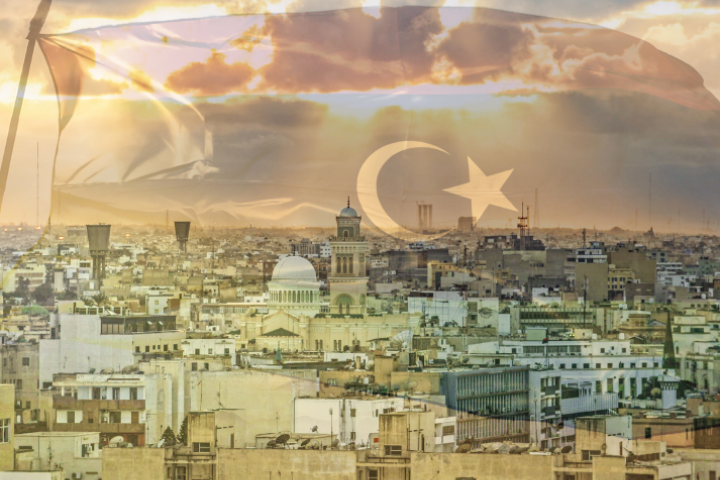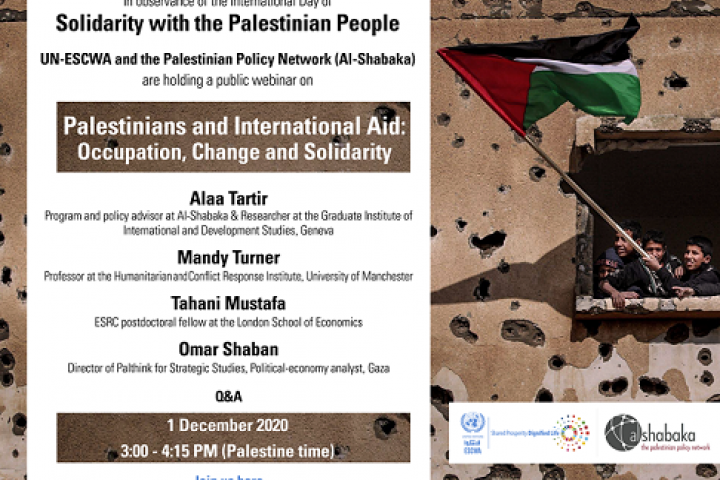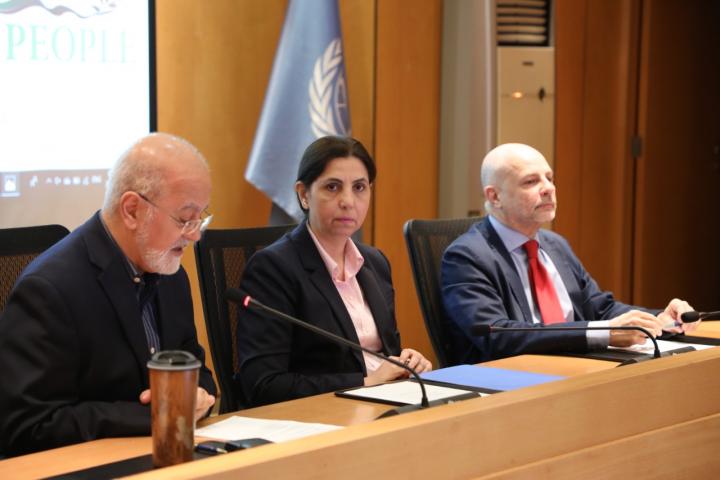The United Nations Economic and Social Commission for Western Asia (ESCWA) launched the second phase of its "Libya Socioeconomic Dialogue Project” in a first online session, which brought together a number of Libyan citizens from various backgrounds representing the different segments of Libyan society. This inceptive discussion centered on "balanced and sustainable spatial development, and local participation", a topic forming part of the economic segment of the dialogue, which will tackle ways to achieve sustainable economic development for an inclusive and diverse economy.
The Libya Socioeconomic Dialogue Project of ESCWA provides a platform for Libyans to formulate an inclusive, comprehensive and achievable vision to transition from ending the conflict to building sustainable peace. It was put forth by ESCWA because it considers the absence of such a common national socioeconomic vision of the State and society as one of the most important challenges that have stalled the transitional process in Libya for over a decade. ESCWA has thus embarked on helping the Libyans to form such a vision and find a balance between their priorities to develop appropriate strategies and policies towards permanent peace in the country.
To secure full Libyan ownership of the project, ESCWA has started work on it by assigning Libyan specialists to collect data and prepare studies on the current state of the society, economy and institutions in Libya. Based on these studies, ESCWA has then prepared for the dialogue phase, determining the topics that it will address in continuous consultation with the Libyans.
During the first consultative dialogue session, relating to sustainable development for an inclusive and prosperous economy, participants expressed the need to develop unconventional solutions in view of the exceptional circumstances in Libya. They identified a number of economic priorities, including:
- Transitioning to a diversified Libyan economy, based on productive efficiency, through restructuring the economy and giving a greater role to the private sector in development and production processes;
- Focusing on developing the local economy, particularly in marginalized albeit resource-rich regions, giving broad mandates to municipalities and helping to build and demonstrate their capabilities;
- Changing the structure of oil revenues management in Libya and diversifying sources of income through activities diversification.
Participants also stressed that it was necessary to focus first on the Libyans suffering from violence and deprivation, and care for them by putting an end to that violence and securing their basic needs, as no development can be achieved without focus on its first and foremost target: the human being.
During the dialogue, ESCWA presented the project and its goals, and shed light on the research phase in which prominent Libyan experts had participated. It highlighted the project's role in providing a platform for dialogue for the largest possible share of the Libyan population, emphasizing that the purpose was not to give precedence to one point of view over another or to reach consensus, but rather to conduct a scientific and technical dialogue in order to discuss ideas and develop them into specific, integrated policies.
The Libya Socioeconomic Dialogue project is grounded in the accumulated experience of ESCWA in the field of development in the post-conflict phase. It benefits from the participation of a wide range of Libyan, as well as international experts and regional partners.
********************
About ESCWA
One of five United Nations regional commissions, ESCWA supports inclusive and sustainable economic and social development in Arab States, and works on enhancing regional integration.
For more information:
- Ms. Maryam Sleiman, Public Information Assistant, +961-81-769-888; email: sleiman2@un.org
- Ms. Rania Harb, Public Information Assistant, +961-70-008-879; email: harb1@un.org



